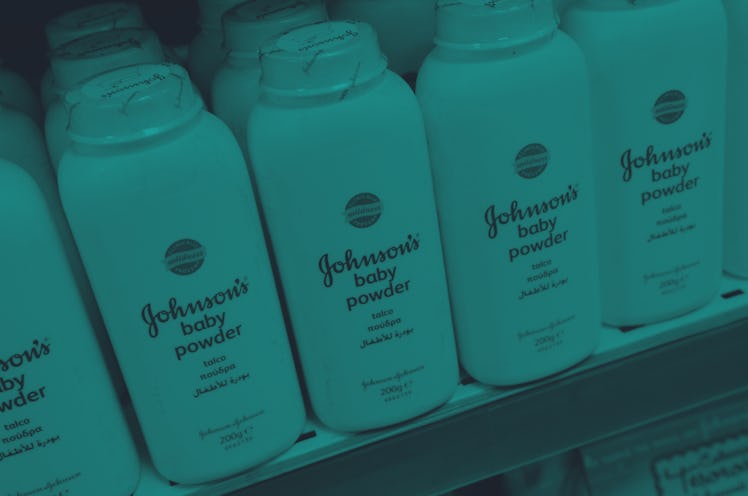Johnson & Johnson To Discontinue Talc-Based Baby Powder — What Parents Need To Know
The company said the decision to pivot away from talc isn’t related to the safety concerns raised in thousands of pending lawsuits.

Johnson & Johnson is discontinuing its use of baby powder containing talc worldwide. The company announced that by 2023, all of its talc-based baby powders would be off of the market. Talc-based baby powder from the company has been removed from most North American shelves since 2020. The company stated the decision to pivot away from talc isn’t related to the thousands of lawsuits pending regarding the safety of talc.
In a statement detailing the companywide decision to switch from talc-based baby powders to cornstarch-based powders, Johnson & Johnson said the decision is an effort to simplify business operations. “This transition will help simplify our product offerings, deliver sustainable innovation, and meet the needs of our consumers, customers, and evolving global trends,” the statement reads.
Johnson & Johnson insists the decision isn’t a statement on the company’s longtime use of talcum powder. “Our position on the safety of our cosmetic talc remains unchanged,” the company’s statement reads.
“We stand firmly behind the decades of independent scientific analysis by medical experts around the world that confirms talc-based JOHNSON’S® Baby Powder is safe, does not contain asbestos, and does not cause cancer.”
The company has faced thousands of lawsuits related to the use of talc. According to Reuters, the company is facing approximately 38,000 lawsuits from consumers and their survivors. The lawsuits claim talc products used in Johnson & Johnson products resulted in cancer due to asbestos contamination. Additionally, reports indicate that the company allegedly knew talc contained cancer-causing asbestos for decades.
Asbestos is classified as a known human carcinogen — a substance that causes cancer — by the International Agency of Research for Cancer, the U.S. Environmental Protection Agency, and the U.S. Department of Health and Human Services.
Studies have linked exposure to asbestos to lung cancer. However, according to Cancer.org, asbestos exposure leading to lung cancer happens most often to those working around the natural substance, such as miners; exposure to purified cosmetic talcum powder has not been shown to increase the risk of lung cancer.
Other studies have suggested a link between asbestos exposure and different types of cancer, such as ovarian, colorectal, and gastrointestinal cancers. One study found that 75% of ovarian cancer tumors may contain talc particles, and another showed that using talc-based powder on the genital area is associated with a potential 20% to 30% increased risk of epithelial ovarian cancer. However, the scientific jury is still out on how accurate these findings are.
Nevertheless, in 2020, Johnson & Johnson was ordered to pay $2.1 billion in damages to 22 people who blamed their ovarian cancer diagnoses on the company’s talc-based products. Yet studies are still inconclusive in terms of there being a direct link between talc-based baby powder use and ovarian cancer, per the National Cancer Institute.
Although there is no medical need to use talc-based or cornstarch-based powders for adult hygiene or baby health, many people use them to help keep skin dry and help certain skin conditions. The American Academy of Pediatrics warns that any baby powder can be potentially harmful to babies because they can breathe in the tiny particles in the powder.
This article was originally published on